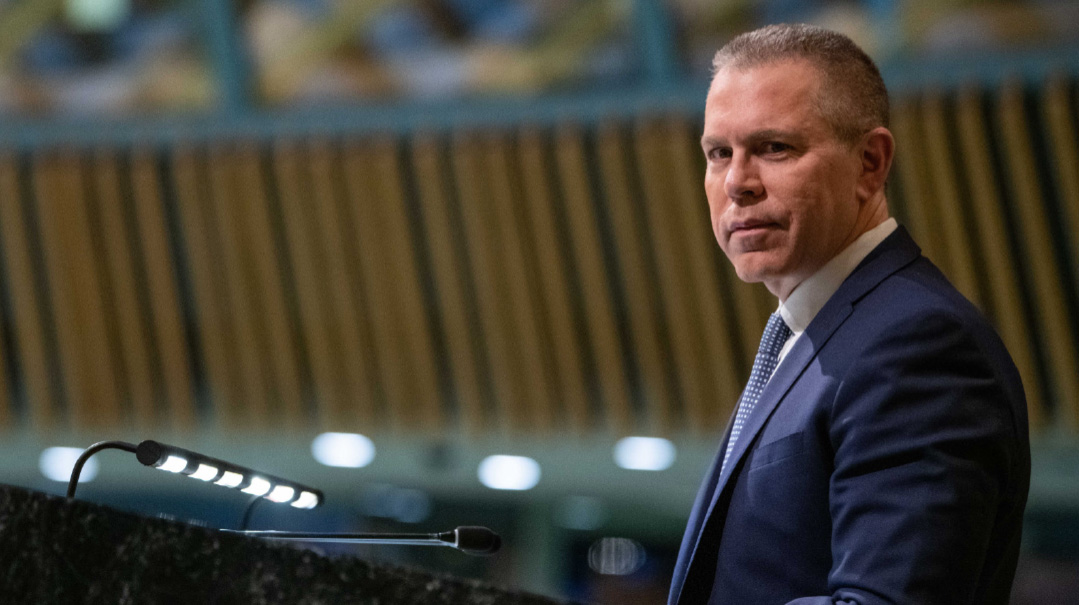The War Within the War

Gallant's call to draft chareidim ensures paralysis and acrimony

1
“IF your goal is to bring down the government, you’re on the right track,” Finance Committee Chairman Moshe Gafni told Defense Minister Yoav Gallant during a tense phone call a day after Israel’s municipal elections.
“A chareidi takeover.” That’s how electoral victories by chareidi and chareidi-backed candidates in cities hitherto considered secular strongholds — Teveria, Tzfat, and Arad — were characterized by the Israeli media. While the general public voted with its feet, spending the day at the mall, chareidim all over the country stormed the polls, internal rifts driving them to max out their potential.
All three of the holy cities within the Green Line are now under chareidi control. In Jerusalem, where chareidim backed incumbent mayor Moshe Leon, the chareidi factions won an outright majority on the city council. Turning north, Tzfas, the city of Kabbalah, and Teveria, the city of Rabi Meir Baal Haneis, will be led by chareidi mayors for the first time since the founding of the state. Only the fourth holy city, Chevron, remains out of reach, its Jewish quarter a bastion of the religious Zionist settler movement.
But the chareidi celebration — which grated on many, including some within the community, against the backdrop of the daily casualties in Gaza — lasted less than a day. The day after the chareidi victory, Yoav Gallant convened a press conference at which he clarified that his Defense Ministry would only submit a bill regulating exemptions for yeshivah students with agreement from all components of the coalition.
We discussed the draft crisis in these pages last week, but the defense minister’s announcement came after a week of further adverse developments, with the High Court of Justice setting an end-of-March deadline for the government to explain its reasoning for why yeshivah students should be exempt from the draft in the absence of a law.
In addition, the government is required to explain why the funding for yeshivos should remain in force in the interim. The Court is jeopardizing the continued supply of flour — not to the Gaza Strip, but to Torah learners.
2
The High Court decision, issued one night before the polls opened, led the chareidim to turn to the prime minister and defense minister with a simple request: “Don’t react yet, give us time to sit down among ourselves after the elections and find common ground.”
The one who spoke with the defense minister was Degel HaTorah chairman Moshe Gafni. “We’ll sit down immediately after the elections,” Moshe told Yoav, and the two agreed to stay in touch. But then, as soldiers’ votes were still being counted, the defense minister’s unilateral declaration reshuffled the deck.
Gallant’s announcement that the Defense Ministry would only draw up a proposal to regulate exemptions for yeshivah bochurim with broad consensus, including from National Unity’s Benny Gantz and Gadi Eisenkot, shocked Netanyahu and the chareidim alike.
With one seemingly innocuous statement, Gallant sentenced the legislative process to paralysis, creating the greatest threat to the government’s survival since its inception.
Riding high in the polls, Benny Gantz has no interest in being an active partner in arranging exemptions for yeshivah students as part of the current government. Backing legislation to allow yeshivah bochurim to remain at their shtenders will not only tarnish his image on the center left, but will strengthen Netanyahu’s hand, effectively neutralizing the greatest threat to the integrity of the coalition.
If Gallant were to submit a bill without Benny Gantz’s consent, there would be a chance, albeit not a good one, of finding 61 Knesset votes — out of 64 right-wing coalition members — for the new legislation. But Benny Gantz, it can be stated with almost absolute certainty, will not vote in favor of such legislation, and hingeing the bill on his agreement sets him on a collision course with the chareidi parties, who won’t be able to remain in a government that undermines the standing and funding of Torah learners.
Gafni’s angry phone call to Gallant was therefore an understandable response from a coalition partner who feels that he was ambushed, not in enemy territory but within the right-wing government’s lines.
3
What was the defense minister thinking when he came out with a unilateral announcement that put the coalition’s very survival on the line?
Politics is personal, they say; definitely in Israel, and one can’t forget Gallant’s long and bitter scorecard with Netanyahu.
Bibi humiliatingly fired Gallant last year after the latter called for an end to the judicial reform at a defiant press conference — a bit of a running theme with Gallant. Ironically, the one who persuaded Netanyahu to rescind Gallant’s dismissal at the time was none other than Shas chair Aryeh Deri, who hosted Gallant on the roof of his Jerusalem home and phoned Netanyahu from his balcony to ask him to reconsider. On the same balcony, Shas’s Deri and Degel HaTorah’s Gafni met last week to discuss their response to the defense minister’s announcement — a political knife in the back.
Hurriedly convening a press conference of his own was Prime Minister Netanyahu. Bibi tried to cushion the new draft law with massive discounts of up to 95% on land for discharged soldiers. As far as concerns the chareidi draft issue, Netanyahu put his finger on what he sees as the key point. The demand for the new legislation to be passed with the agreement of all members of the coalition would mean one thing: wartime elections that would play into the hands of Israel’s enemies in the north and south and sentence Israel to at least five months of paralysis.
The draft issue is dividing Israel at the height of a difficult war, and to the chagrin of the chareidim, in light of the legal and political circumstances, it will remain on the agenda for months. The Brothers in Arms movement, which led the protest against the judicial reform, has already announced that it will take to the streets to demonstrate for “sharing the burden.”
But for anyone who still had any doubt that the heart of the matter is politics, at least as far as the politicians themselves are concerned, National Unity chair Benny Gantz’s proposal to Aryeh Deri should have been conclusive. In broad terms, Gantz proposed talks on a draft bill palatable to everyone in exchange for a commitment to go to elections as soon as the war is over. Deri turned him down, which means that the internal war will continue at high intensity for the foreseeable future.
(Originally featured in Mishpacha, Issue 1002)
Oops! We could not locate your form.







